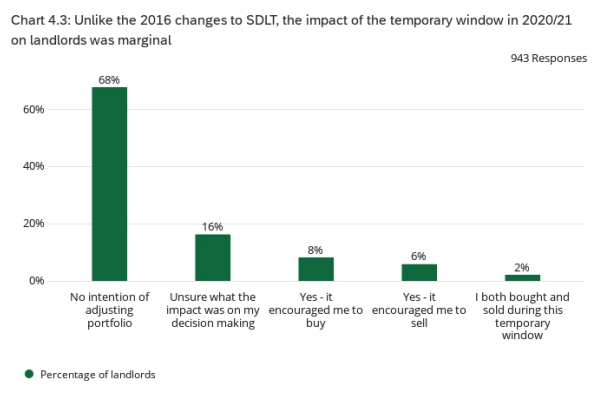Silver jubilee for Guild of Property Professionals membership
Over the past twenty-five years, The Guild of Property Professionals has grown from an idea to an award-winning supplier in the property industry with over 800 members across the UK.
This year, The Guild is celebrating its membership and acknowledging the vast number of agents who have been a part of the network for many years and have contributed to its success and strength.
At least 55 members have been with The Guild for at least 15 years, with some of them having been with the network for 20 years or longer. A further 160 members have been a part of The Guild for between 10 and 14 years, while 265 members have been a part of the network for between 5 and 9 years.

Iain McKenzie, CEO of The Guild of Property Professionals, says that a massive contributing factor to the success of the organisation is its network, which is one of the largest estate agency networks in the UK.
“Aside from the benefits of having a large referral network across the UK, Members are also able to learn from each other as property professionals, exchanging best practises and ideas that will help them grow their businesses.
“Independent agents are able to be in business for themselves, while enjoying the advantages and influence being a part of a larger organisation provides. It is this experience and the calibre of agents within the membership that has been a large contributor in the growth of The Guild over the years.”
McKenzie feels that the organisation has been able to leverage the size and influence of the network to negotiate preferential deals with third party suppliers for Guild Members, which in turn has put money back into agents’ pockets.
“Apart from the networking aspect, many of our Members have stayed with us because of the money they have saved over the years. Rather than paying for fragmented services, as part of The Guild, Members have access to referrals, income-generating tools, legal advice, and compliance all under one roof for a set monthly fee,” he said.
“When The Guild started it wasn’t much more than a window sticker and a magazine. Today it is a full suite of both traditional and digital products designed to increase market share and win business, not forgetting the exceptional compliance guidance provided to the network through our Compliance Officer, Paul Offley. Many Members have said the compliance offering alone is worth the membership.”

Over the years The Guild has continually tried to enhance its membership offering by introducing additional tools and products that not only save agents money, but also generate further revenue.
“The driving force that steers our decision making in terms of our service offering is split into three elements, which are to save money, make money and remain compliant.” says McKenzie.
He notes that during 2022, The Guild will continue to develop services and negotiate deals that will enhance the membership offering and assist The Guild network to stand out from their competitors.
Report commissioned by NRLA shows it has been a taxing time for landlords
A detailed report put together by The London School of Economics, commissioned by NRLA, and put together by Kath Scanlon, Christine Whitehead and Fay Blanc, shows that the ever-increasing and ever-changing taxation of landlords is biting, with 39% deciding not to buy another rental in the foreseeable future.
Ben Beadle, CEO of the National Residential Landlords Association, commented: “It is clear that recent tax increases have deterred investment in the sector. With the demand for homes to rent outstripping supply this will only hurt tenants as they face less choice, higher rents and find it more difficult to save for a home of their own as a result.”

Having become a landlord myself at the tail-end of the 80s, and watching over the decades of ever-tightening red-tape and changing tax regimes bought in by the ever-changing Secretaries of Housing (16 to my memory) it comes as no surprise that some landlords in the PRS have had enough.
Do not get me wrong, I am not an advocate of Rachmanism, and feel that the vertical needs to be policed and tenants and landlords looked after, but if people need somewhere to rent then dissuading landlords is not a good idea.
I would recommend that the present embattled government, and more specifically the great leveller Michael Gove, take a good read of the report that, although has a reasonably small sample size, does echo the sentiment of many.
For those who have limited time, here are the key findings of the report:
The main findings of our survey of some 1400 landlords currently active in England showed: that large proportions of landlords were concerned about the cumulative effect of tax changes.
Landlords saw the change from mortgage interest rates to 20% credit as the most important tax change with 33% seeing it as significant to the operation of the landlord business.
The 3% SDLT surcharge came second, with 27% of landlords seeing it as significant; followed by changes in the treatment of furniture and fittings – 26% – and in the capital expenditure allowance – at 24%.
Overall 11% of landlords thought that the tax changes had made a decisive impact on their own plans; a further 15% thought they had made a major impact; and another 26% thought there had been some impact. Only 30% said their plans had not been affected.
Those who identified the changes to mortgage tax relief (section 24) and to capital gains tax as significant were asked how each tax change had affected their landlord business: 39% said they were not proceeding with planned future purchase. 31% said they had put plans on hold. 28% said they were taking steps to leave the sector. 15% were restructuring their business
Coadjute powers forward with strategic Credas tie-up
As I have reported many times, there is an ever-quickening realignment of the major architecture pieces that will run the future of real estate. Software and new technologies are not just automating processes, they are ensuring a much higher grade of service twenty-four hours a day, seven days a week.
Moving through 2022, we are going to see some huge partnership announcements, and the pace of investment in proptech and fintech solutions in the UK property vertical will go through the roof.

So it comes as no surprise that Coadjute, headed up by Dan Salmons, with the brilliance of John Reynolds as COO, has partnered up with Credas.
Credas, helmed by CEO Timothy Barnett who is flanked by CTO Kevin Smith, has a very well-regarded organisation that, amongst other things, digitally streamlines the verification of a person’s identity to a very high level.
As Credas states: “In an increasingly digital world, we often take trust for granted, relying on a person’s honesty. Identity theft is a major issue. Criminals and professional fraudsters are using the internet and inventive ways to assume another person’s identity and commit financial crime. When you’re about to take on a new customer or appoint a new employee, you want to be sure the person is who they say they are.
“With Credas ID checks, the verification process just got a lot simpler. Our ID checking service verifies the person against an identity document, and our technology confirms the identity document is genuine. Results are in real-time, and data stored securely in the cloud, available to you when and where you need it.”

Dan Salmons said that the Coadjute and Credas strategic partnership will “significantly expand the market for digital identification, as for the first time, identity information can not only be collected digitally, but can also be verified and shared between users of participating software platforms.”
The importance of this statement needs to be fully understood, as Coadjute’s prime aim is to be the useful and fast operating system of the whole property ecosystem that quietly sits under all property stakeholders’ operating systems, seamlessly giving clarity to everything.
So with the technology stack of Credas now in the mix, Coadjute’s digital river of information, the ability for users to access key documentation and keep oversight, the problems around AML, ID and KYC will be alleviated, speeding transaction times, enabling agents to do transactional work rather than paperwork, and give lenders and solicitors verified data they can trust at speed.
It has to be pointed out that at this moment in time, with regard to the accreditation/certification process, only UKAS can accredit certification organisations; and then certification organisations will be able to certify identity service providers (IDSPs). But this process has not commenced yet.
So any organisation, unfortunately, cannot claim this at this stage. The only communications that DCMS have issued relating to this subject so far surrounds the alpha self-assessment feedback, but this is not a formal certification against the trust framework.
Hopefully, we will soon be out of the foothills and see mature accredited identity service providers.
And at this stage, the analogue world of real estate in the UK is dragging itself forward with possibilities of a digitally transformed way of truly being a people business, where software and coding allow for property transactions to flow rather than be a 28-week ordeal that stresses every stakeholder in the process.
In my opinion, in a time of focus on mental well-being, the quicker adoption of sound solutions is going to be key. If vendors and buyers can improve their user journey through the adoption of a tech-enabled approach, it will be a win for all involved.
Thirdfort analysis: 25% of agents not registered with HMRC
It is a legal requirement if you are an estate agent or deal in property that you register every year with HMRC to comply with the anti-money laundering (AML) policy and pay an annual fee. In a new analysis, Thirdfort discovered that over 5,000 agents have not registered for 2022, from a total of 22,000 agents.

There will also be a number of property-adjacent businesses on top of this that also need to comply and register with the HMRC, like property sourcers, etc. The telling thing is that if almost 25% of companies are not paying their subscriptions this year, have they ever? Would they be subject to back paying these fines, too?
Also for the online models, would the LPEs who were self-employed (a moot point) have been paying into HMRC?
Connected to all of this is the fact that to be a part of the Property Ombudsman Scheme, as per section 11, agents must “understand your legal obligations to register with HMRC for Anti Money Laundering (residential sale agents)”
So does that mean that almost 25% of agents are not only in possible breach of the AML code, they also are not fit to be part of the Ombudsman scheme? And if so, are they now not allowed to trade until they legally register with such a scheme?
As a proptech and real estate analyst, with a day job helping proptech and fintech founders grow their businesses and sell them, it is with great delight that software, great coding and great minds are at last showing the huge gaps in real estate, shining a glaring spotlight on all that is wrong with the analogue, paper-based world of estate agents.
Don’t get me wrong, I was that estate agent in the trenches once, both in the corporate agency model and with my own business. Dealing with red tape to ensure we were compliant would make me rant and rave, as I was always too busy doing the day job of getting sales teams to transact business.

So what Thirdfort have highlighted is not “let’s fine all the agents.”
No, what it is saying is “let’s digitise all the agents.” Enable compliance matters to be done with software so that agency owners and other businesses are compliant, the businesses are risk-free and the general public knows they are dealing with good businesses.
For years I have been preaching, not screaming, that the digital transformation of real estate is the same as the fintech revolution in banking. Consumers want to do things in a click; press a button and it arrives in a smiling cardboard box the next day supplied by a $1.7 trillion valued company.
If you are an analogue agent who cannot even fill out a form for HMRC once a year, digitally, and make a payment, also digitally, then what hope have you got to beat the digitally-agile agent opening up in your town or city?
Proptech and fintech companies are not the enemies of agents, they are your best allies. Agents are not losing market share to other agents, it is just digital evolution. Agents that are tech-enabled can see how it scales their business to beat other paper shuffling businesses, the kind run by people with business models from twenty years ago.
Thirdfort It‘s a great company doing great things, and I’m not the only one who truly sees what they have to offer. Alex Chesterman in The Times said: “Another example of a business solving a real problem is Thirdfort. The process of buying or selling a home hasn’t changed for decades and carries increasing risks for lawyers around compliance and for consumers around fraud. Thirdfort tackles this with a mobile app, empowering lawyers to carry out checks with no need for physical documents. With a photo of the required documents and a selfie, Thirdfort carries out identity and anti-money laundering checks.”
The Weekly Debrief in partnership with Estate Agent Networking
Andrew Stanton is the founder and CEO of Proptech-PR, a consultancy for Founders of Proptechs looking to grow and exit, using his influence from decades of industry experience. Separately he is a consultant to some of the biggest names in global real estate, advising on sales and acquisitions, market positioning, and operations. He is also the founder and editor of Proptech-X Proptech & Property News, where his insights, connections and detailed analysis and commentary on proptech and real estate are second to none.












